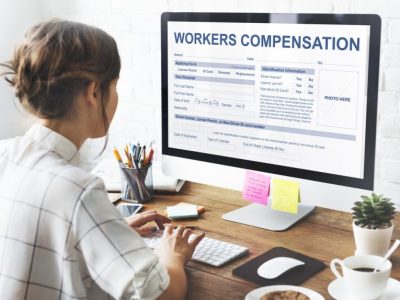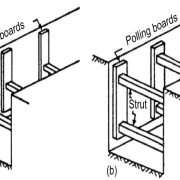
New York’s legal system is designed to serve everyone who lives, works, or is harmed within the state, regardless of national origin or immigration status. For many families, the idea of stepping into a courthouse is daunting, yet the law provides concrete pathways to hold wrongdoers accountable and secure compensation. This article explains how courts view immigrant plaintiffs, what barriers still exist, and which protections help level the playing field. You will learn how language access, privacy rules, and recent policy shifts interact to protect claimants and strengthen their cases. If you are seeking experienced guidance, firms such as the Jacob Fuchsberg Law Firm regularly counsel clients on complex civil claims, including those brought by noncitizens pursuing the Immigrants’ Right To Sue.
Legal Standing of Immigrants in Civil and Personal Injury Cases
New York courts recognize that people—citizens and noncitizens alike—are entitled to seek justice when they are injured, defrauded, or discriminated against. In negligence, medical malpractice, construction accidents, wage-and-hour disputes, and consumer fraud, immigrant plaintiffs have full standing to sue. This includes undocumented workers and visitors, so long as the court has jurisdiction over the incident or the parties. The judiciary’s consistent approach is straightforward: immigration status does not determine whether a person can file a lawsuit or recover damages. That principle underpins the Immigrants’ Right To Sue and reflects the state’s commitment to equal access to civil remedies.
Practical implications for plaintiffs and families
Standing means an immigrant can bring most civil claims: personal injury, wrongful death via a representative, labor violations, and breach of contract. For example, the New York Court of Appeals in Balbuena v. IDR Realty confirmed that undocumented workers can pursue lost wages and other damages in workplace injury cases, especially when safety violations are involved. Courts reason that denying recovery would undermine public safety and incentivize unlawful labor practices. The same logic applies to tenants harmed by negligent landlords and patients injured by medical errors. In each setting, the focus is on the wrong and resulting harm—not a plaintiff’s documentation.
Equally important, immigration concerns typically do not limit the damages available unless a specific federal statute directly conflicts. Even then, New York courts carefully tailor any limits to avoid rewarding wrongdoing. Plaintiffs can pursue economic losses, pain and suffering, and punitive damages where applicable. In many cases, judges will preclude the introduction of immigration status to a jury, preventing prejudice and ensuring decisions rest on facts and law. These principles reinforce that the courthouse door is open to all and that the Immigrants’ Right To Sue is not theoretical—it is practical and enforceable.
How Immigration Status Impacts Access to Legal Remedies
While New York’s legal framework guarantees standing, immigration status can still affect how comfortable someone feels asserting their rights. Fear of retaliation—especially threats to report a person to immigration authorities—can deter witnesses from coming forward and victims from filing. Some workers worry about sharing personal information in court documents, and survivors of abuse may hesitate to testify. These concerns are real, yet the legal system has developed safeguards to reduce risk and encourage participation. Courts in New York increasingly view immigration-based intimidation as a serious form of obstruction that should not influence outcomes.
Discovery and privacy protections that matter
Discovery—the exchange of evidence—can raise questions about personal history. Judges frequently issue protective orders that block intrusive requests for immigration records unless there is a compelling, case-specific reason. The common rule is that immigration status is irrelevant in most negligence and employment cases, so fishing expeditions are not permitted. When disclosure is relevant, courts often limit it to the narrowest scope and may seal documents to protect privacy. This approach keeps the focus on liability and damages rather than collateral issues.
Retaliation is another concern, especially in wage and hour and safety cases. New York law and federal labor rules prohibit employers from retaliating against workers who assert legal rights or cooperate with investigations. If a boss threatens deportation or leverages immigration status to silence a claim, that conduct can itself support additional civil claims or penalties. For many, U and T visa processes offer potential relief: victims of certain crimes or trafficking who assist law enforcement can apply for immigration benefits, which can reduce fear and support participation in civil litigation. Attorneys help clients navigate these intersections, ensuring the Immigrants’ Right To Sue remains meaningful in practice, not just on paper.
State and Federal Laws Protecting Immigrant Plaintiffs
A robust set of state and federal laws protects immigrant plaintiffs, regardless of status. At the federal level, the Fair Labor Standards Act covers overtime and minimum wage; Title VII, the ADA, and related statutes bar discrimination by covered employers; and OSHA sets safety rules that apply to all workers. Federal civil rights laws—such as 42 U.S.C. § 1981 (equal rights to make and enforce contracts) and § 1983 (enforcing constitutional rights against state actors)—provide additional tools to challenge discrimination and abuse. Importantly, these laws do not require U.S. citizenship to invoke their protections.
Key legal frameworks you should know
- New York Labor Law: Requires safe workplaces, mandates timely payment of wages, and allows recovery of unpaid wages with interest and, in some cases, liquidated damages. The Scaffold Law (Labor Law § 240/241) is a powerful protection in construction injury cases.
- New York Human Rights Law and NYC Human Rights Law: These broad anti-discrimination laws protect against bias based on national origin, race, and other protected characteristics in employment, housing, and public accommodations.
- Workers’ Compensation Law: Provides medical care and wage replacement to employees injured on the job, including undocumented workers. Employers may not avoid responsibility by invoking an employee’s status.
- Crime Victims and Trafficking Protections: Survivors can access services and, in some cases, restitution. Cooperation with law enforcement may support U or T visa applications, which can stabilize a person’s situation while a civil case proceeds.
New York appellate courts have repeatedly rejected attempts to use immigration status to erase damage claims. In Balbuena and subsequent decisions, judges emphasized that allowing wrongdoers to escape liability would undermine safety and reward exploitation. Federal law can set limits—Hoffman Plastic restricted certain backpay remedies in narrow labor contexts—but New York courts differentiate those settings from tort and statutory claims designed to deter negligence and wage theft. That differentiation ensures the Immigrants’ Right To Sue remains intact across most civil contexts. When legal strategy gets complex, consulting experienced counsel—such as the Jacob Fuchsberg Law Firm—can help plaintiffs select the right statutes, frame damages, and protect sensitive information throughout the case.
Language Access and Legal Aid Services in New York Courts
Language should never be a barrier to justice, and New York’s court system provides interpreters at no cost in criminal, family, and most civil proceedings. Court interpreters are trained professionals who facilitate communication between judges, attorneys, and parties, ensuring accuracy and confidentiality. Many essential forms and instructions are available in multiple languages, and courts can often arrange telephonic or video interpretation when an in-person interpreter is unavailable. These services help plaintiffs give testimony, understand deadlines, and make informed decisions. They also reinforce that access to the courts is a right, not a privilege tied to English proficiency.
Finding help and navigating resources
New York’s legal aid ecosystem offers substantial support for immigrant litigants. Court Help Centers provide self-help materials and can explain procedures, though they do not give legal advice. LawHelpNY.org aggregates free and low-cost legal services by county and language, making it easier to locate relevant assistance. Nonprofits such as The Legal Aid Society, NYLAG, Make the Road New York, Catholic Charities, Safe Passage Project, and AALDEF run clinics and hotlines that address housing, wage theft, consumer issues, and family matters. For those with complex injuries or malpractice claims, partnering with a private firm experienced in multilingual representation—like the Jacob Fuchsberg Law Firm—can ensure that interpreters, translated documents, and bilingual staff are integrated into the litigation plan.
If you or a family member needs an interpreter, it is best to notify the court as early as possible—ideally when you file or respond to a case. Judges can also appoint interpreters for witnesses, not only parties, which is crucial when coworkers or neighbors have information about an accident or unsafe workplace. When documents must be translated, attorneys often use certified translators to avoid disputes about accuracy. With these safeguards, language differences do not diminish the strength of a claim; instead, they become logistical issues that a well-prepared legal team can manage effectively while advancing the Immigrants’ Right To Sue.
Recent Policy Changes Supporting Equal Justice Initiatives
Over the past few years, several policy developments have strengthened immigrants’ ability to pursue civil claims in New York without fear of immigration-related harm. The Protect Our Courts Act, enacted in 2020, curtailed civil immigration arrests in and around courthouses without a judicial warrant. This law responded to reports that courthouse arrests discouraged victims and witnesses from appearing, thereby compromising cases. New York also expanded protections against extortion and coercion based on immigration status, making it unlawful to threaten to report someone to gain advantage in employment or personal disputes. These changes reflect a broader recognition that intimidation distorts justice and must be countered with enforceable rules.
Shifts that reduce risk and encourage participation
At the federal level, policy guidance has also evolved. The Department of Homeland Security issued courthouse guidance limiting enforcement actions in and around courts, and in 2023 introduced a process for “deferred action” tied to labor disputes. That process allows workers who report significant labor violations to request temporary protection and work authorization while investigations proceed, helping stabilize their circumstances during civil litigation. In New York, wage theft enforcement has intensified; the state now treats certain wage theft as larceny, increasing accountability and complementing civil suits for unpaid wages and penalties. For freelancers and gig workers—many of whom are immigrants—the statewide Freelance Isn’t Free Act expands contract rights and damages for nonpayment, reinforcing avenues to recover what they are owed.
Language access has simultaneously improved. New York’s statewide language access initiatives require agencies to provide translation and interpretation across commonly spoken languages, and the court system continues to expand interpreter capacity, including remote options. Together with nonprofit outreach and pro bono initiatives, these policies lower the temperature around courthouse participation and encourage victims and witnesses to step forward. For families weighing next steps, the path is clearer: you can file a claim, protect your privacy, and access interpretation without jeopardizing your safety. If you need case-specific guidance that aligns with these developments, seasoned litigators—such as those at the Jacob Fuchsberg Law Firm—can integrate policy tools into a tailored litigation strategy so the Immigrants’ Right To Sue translates into practical, measurable results.

















Comments